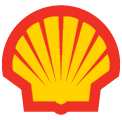
Blockchain is best known as the technology that makes crypto-currencies possible, but could the same shared ledger technique be used to update an error-prone logistics process within the oil drilling industry? Together with a colleague, I helped organize and facilitate a 2-day workshop at Shell, with experts from different disciplines, in order to help them answer this very question.
An oil well is a highly complex system, composed of thousands of moving parts that must perform under harsh environments. Quality and reliability of equipment is therefore of paramount importance since accidents can have a high financial and human impact. A set of certifications are in place to ensure this quality, but the process relies heavily on paperwork and constant communication between parties, which is prone to errors. Could Blockchain be the answer?
Our workshop started with introductory presentations from different stakeholders about the inner workings of logistics within oil wells, and what blockchain technology is all about. This allowed the multi-disciplinary team to get up to speed with the subject matter and generate a common understanding of what we were aiming for.
The final step of our workshop was to agree on the scope of the proof-of-concept and to define the details for it. This was done by making a scope map that defines What, Who, When & Where for the different stages of the project, followed by a session in which the roles played by the different stakeholders were mapped and their interactions with each other defined for the proof-of-concept.
A key aspect of our contribution as facilitators was helping the team to quickly grasp ideas and discussions that originated from the group activities, and to translate them into ‘tangible’ frameworks, maps and process charts that enabled a shared understanding. These deliverables served as stepping stones for the whole team to move forward with the project.

